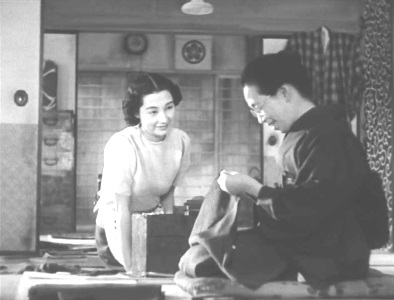Brothers and Sisters of
the Toda Family
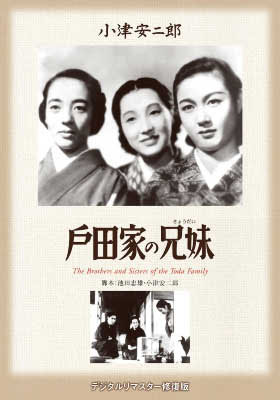
Director: Yasujirô
Ozu
Year:
1941
Rating: 7.0
After What Did
the Lady Forget in 1937, Yasujirô Ozu did not direct another film till
this one, four years later. That was partly due to the studio Shochiku not
being entirely happy with the lack of commercial success of his films but
more importantly being drafted into the military at the end of 1937. He was
to spend two years in China fighting on the front lines - possibly being
part of a chemical war unit before his enlistment ran out and he returned
to filmmaking. I have not seen Ozu's post war films but I have never gotten
the sense that his war experiences ever influenced them in the same way they
did with other Japanese directors such as Masaki Kobayashi who directed the
trilogy The Human Condition about the war. When Ozu returned, he found a
very different set of rules that had been set up by the government regarding
what sort of films could be made. His first script that later became The
Flavor of Green Tea Over Rice (1952) was rejected and so he wrote the script
to this one with his long-time collaborator Tadao Ikeda. It turned out to
be his first hit.
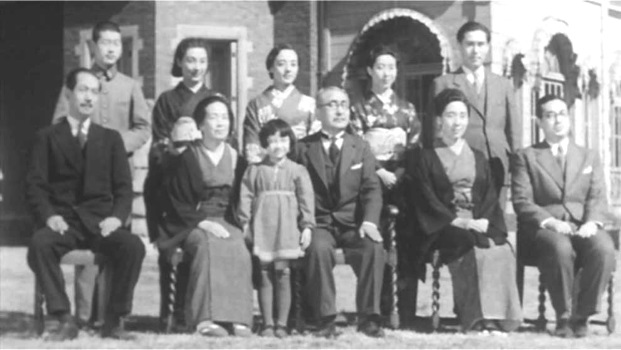
Like many of his films, it is about family
and tradition with modernity corrupting the family unit. It may be based
on the American film, Make Way for Tomorrow which was released in 1937 though
I don't know when Ozu could have seen it - but it follows that film very
closely. Make Way is a brilliant film but also one of the saddest I have
ever seen - right to the end. Ozu doesn't take it to its logical conclusion
but gives it a happy ending of sorts - which may have been why it was a big
hit. Make Way sunk like a stone. Though in retrospect how happy it really
was is up for debate. On one hand it seems to say the traditional family
is floundering but at the same time traditional values for women are still
stuck in amber. I know that Ozu is famous for his static camera but it never
has struck me as much as it does here. The camera never moves, never follows
a character or a situation. He sets it down low and films a scene though
there are a few set-ups. It creates a somber heavy mood.
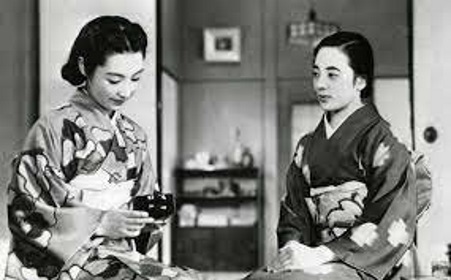
The three generation Toda family appears
to be a successful and happy one when they all gather for a celebration and
family photo. There are three daughters and two brothers, a son-in-law, a
grandson and the patriarch and his wife. On that day they eat well and drink
too much sake. Later that night the father has a heart attack and dies. The
glue that held the family together becomes unglued as rifts in the family
become apparent - especially after it is found that this prosperous businessman
was actually deeply in debt. To cover the debts, they have to sell the family
home and all the contents within. This in a sense leaves the mother (Ayako
Katsuragi) and the youngest unmarried daughter Setsuko (Mieko Takamine) without
a place to stay or an income. This sets the scene for the rest of the film
as nobody really wants to put them up. The wife of the older brother finds
them in the way and the two other daughters don't feel they really have the
space for them. Nobody steps up for them until the youngest son (Shin Saburi)
comes back a year later from China and has a family intervention.
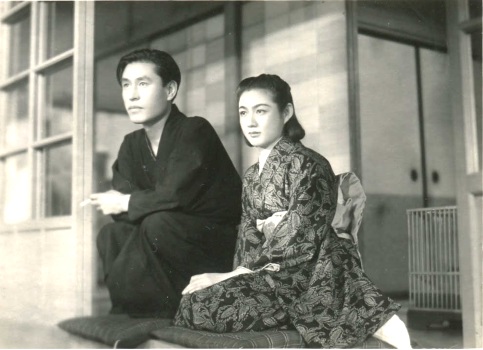
This seems to fix everything as he promises
to take the mother and his sister back with him to China and to find Setsuko
a husband in China and she pressures him to marry her good friend Tokiko
(Michiko Kuwano). Both gender and class status stays firmly in place. Women
find a husband of the same class and marry them. Or found for them. Earlier
in the film Setsuko had considered finding a job and that was immediately
rejected by the family and even her friend Tokiko because she was from the
employer class, not the employee class and being a clerk would shame the
family. The fact that Ozu clearly knew what was going on in China and makes
moving there the happy ending feels very odd. By the end of the year Japan
was at war with the USA and England and there would be few happy endings
for a while. Perhaps treating China as a normal place to go reside
was in a sense propaganda that helped get it through the censors.





